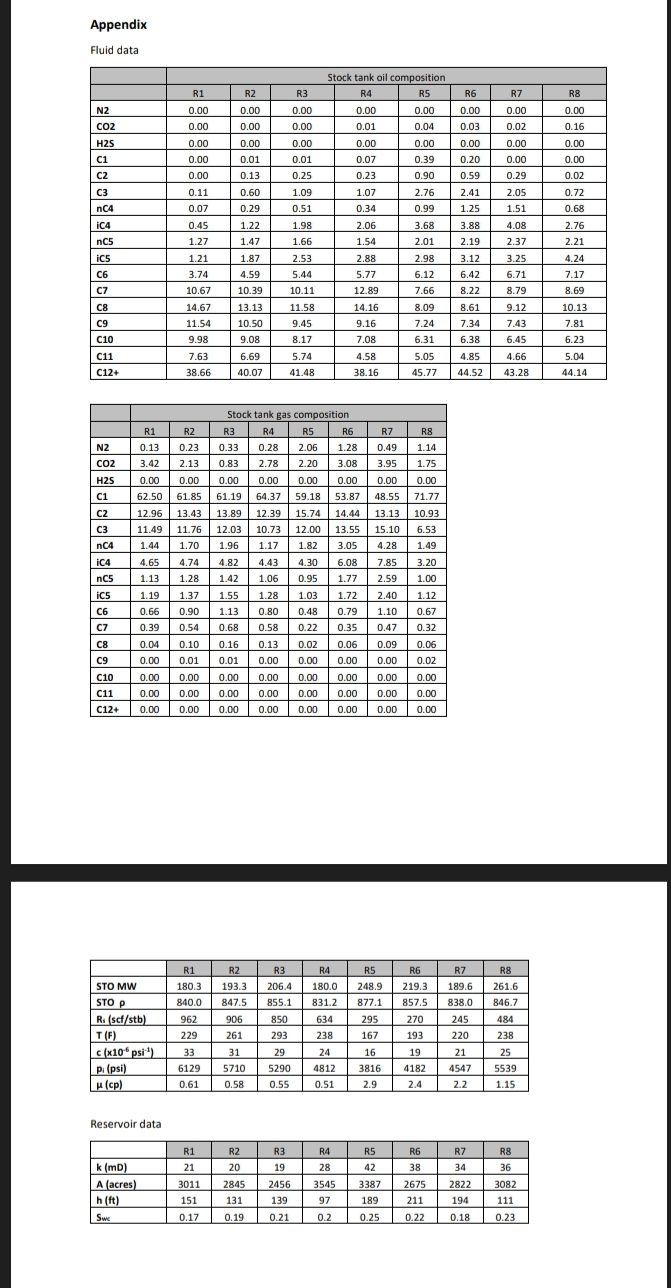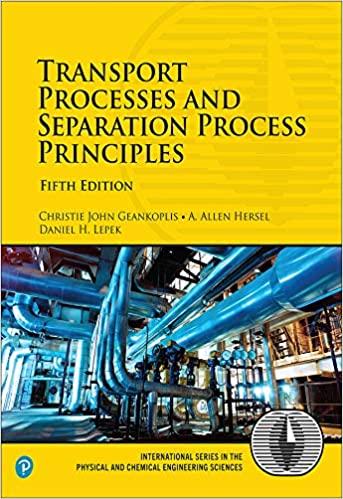Answered step by step
Verified Expert Solution
Question
1 Approved Answer
Project 1 - Description Samples of the fluids produced at the surface have been obtained from an undersaturated oil reservoir compartment. The oil and gas
Project Description
Samples of the fluids produced at the surface have been obtained from an undersaturated oil reservoir compartment. The oil and gas samples have been analysed by GC chromatography and their composition and other related properties is now available in the Appendix. The fluid is considered to exhibit nearly constant compressibility at any pressure above the saturation one.
The reservoir is considered to be perfectly cylindrical and volumetric. The average porosity is not known but engineers believe that it varies between and Other reservoir and fluid data are given in the Appendix.
The compartment is drained by a single well that is positioned at the centre of the drainage area and its diameter is
Estimate the reservoir oil composition.
Compute the minimum and maximum expected reserves oil and gas at SC according to the uncertainty of the provided parameters values.
Compute the expected recovery factor over pressure as the latter declines from its initial value down to the saturation one. Plot the expected production of oil, gas and water over pressure. Assume that porosity exhibits its average value.
If the reservoir is scheduled to produce at a constant flowrate of stbd estimate how long it will take until gas is formed for the first time in the reservoir.
What would be the recovery factor on that day if the well exhibits a skin factor equal to
Notes
To compute the reservoir fluid composition you need to estimate the molar ratio from the value and the STO properties.
PVT values required can be computed from the corresponding correlations. You need to estimate and at Therefore, you need the specific gravity of stock tank gas and oil. This in turn requires the molar mass of the stock tank gas. You need to compute it
To estimate reserves you also need at the initial pressure. This can be computed from the value at the bubble point pressure by noting that
Recall that when the volume of a slightly compressible fluid at is known, its value at any pressure above can be computed by noting that
For question you need to set up a material balance model. You need to apply that model in order to predict future by using the value estimated in question
For question the time when the reservoir turns diphasic is when becomes equal to You need to estimate the average pressure by that day, estimate the remaining reserves, compute how much oil will have been produced and translate that into time.
Make sure that your final report contains fully detailed explanation of the reasoning and steps you have taken to attack the problem. Results also need to be clearly described and detailed.
Feel free to use any software you like.
The final deadline for the submission of the projects reports is the day when the written exam is going to take place.
STO pTFRel can enayone solve this project

Step by Step Solution
There are 3 Steps involved in it
Step: 1

Get Instant Access to Expert-Tailored Solutions
See step-by-step solutions with expert insights and AI powered tools for academic success
Step: 2

Step: 3

Ace Your Homework with AI
Get the answers you need in no time with our AI-driven, step-by-step assistance
Get Started


